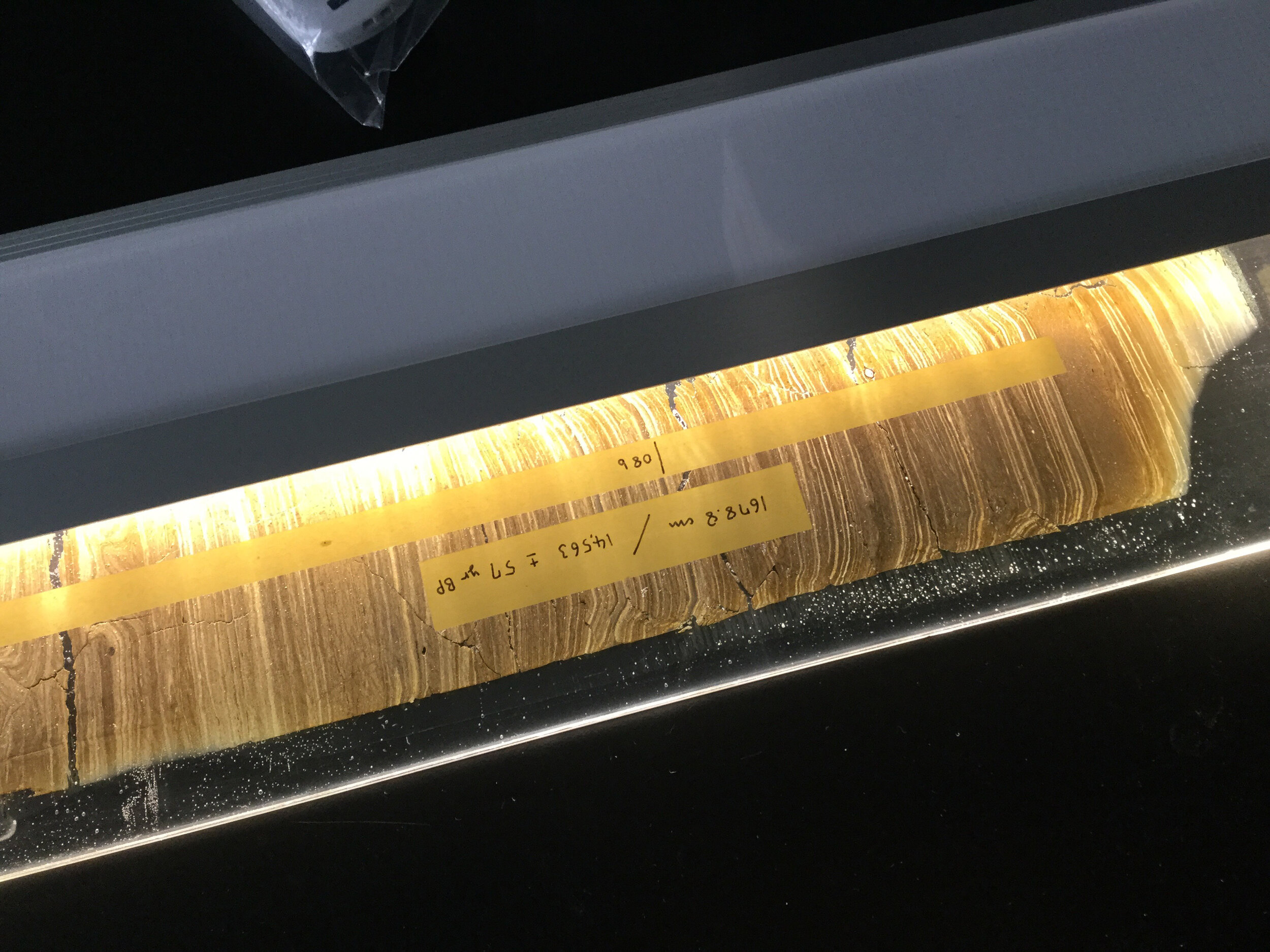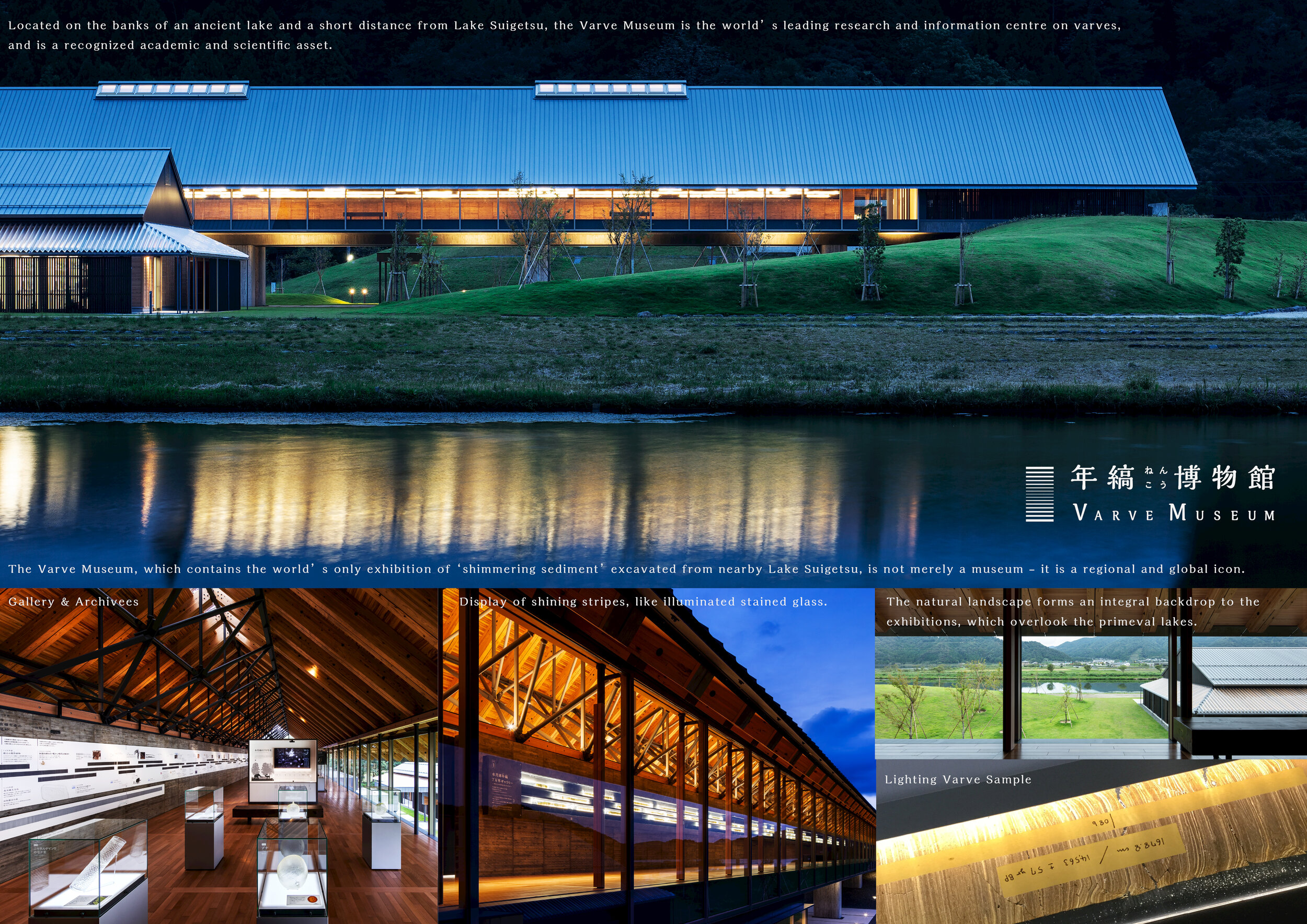Varve Museum by Nomura Co. Ltd + Naito Architect &Associates
Name of Company or Individual: Nomura Co.Ltd + Naito Architect &Associates
Country: Japan
Website: http://www.nomurakougei.co.jp/english/
Project Name: Varve Museum
Project Completion Date: 9/15/2018
Project Completed City: Fukui, Japan
Architecture Division: Landscape Architecture
A symbolic landscape that unveils 70,000 years of terrestrial history Fukui Prefectural Varve Museum, situated near Lake Suigetsu, opened in 2018 as the world's first museum dedicated to varves. Varves are thin bands of sediment deposited annually at 0.7mm layer in glacial lakes and those from Lake Suigetsu which date back 70,000 years, have been verified against radiocarbon dating at the International Radiocarbon Conference in July 2012, and it is now exhibited at the Museum as a precious shining asset of the region.
The purpose of the building of the Museum was to showcase both the significance of the scenic ancient Lake and the exhibitions generated by the Lake. We chose to integrate the museum with the surrounding landscape, creating a spacious and open structure that affords stunning views of the lakeside scenery, creating a harmonized work of architecture, display and landscape. The main exhibition gallery is a rectangular corridor of 500 built-in a beautiful cloister style and provides open-wide stunning lakeside views, an essential part of the exhibition, while shaded enough for exquisite beauty of the varves. The contrast of high-tech studies combined with indigenous building materials represents continuity between the interior and the landscape.
Varve Museum has become a place to experience time travel for visitors and for the local resident, a gift of identity to be proud of. We positioned the whole building literally as a showcase with wide overhanging eaves and UV-prevention film that coats the window glass and sashes, a façade exposing the varves exhibitions. The exhibit changes colour throughout the day with the shifting reflections of light and the hue of nature, being set against a backdrop of spectacular scenery, ancient lakes and the sun. Another way to integrate the museum with the surrounding landscape, and as a teste of Japan, low embarkment is arranged, which makes the rectilinear structure of the building and the exhibition standout. The result is an illuminated display of 100 shining stripes that add scenery to the vast surrounding nature. The varves samples are mounted between two glass panes and backlit to maximum effect. It is a preservation technique coated in epoxy resin, as well as to visualize the varves - a quite rational solution.
Varves contribute history study through age-determination standards such as tree rings and radiocarbon or trace of earthquake and flooding and provide opportunities to learn more about anthropology, geology and paleoclimatology, Varve Museum, located in a part of a designated scenic area in a beautiful, out-of-the-way location, has attracted more than 30,000 visitors in the first six months after opening, and continues to allure visitors from all over the world. In the era of the Internet with abundant information available, the mission of exhibition space builders is to produce a reason for visitors to be there. We believe we made Varve Museum to be such one-a of-a-kind place to go, thanks to the graceful landscape harnessing the roman of land history.






